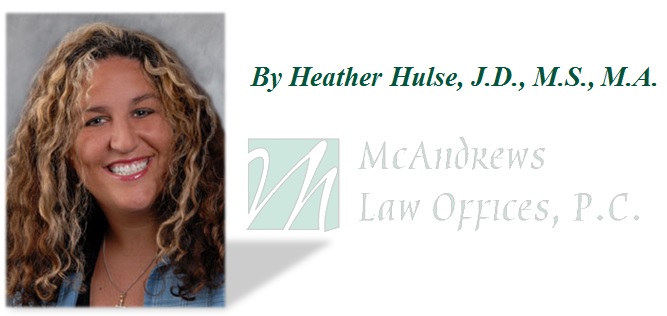From Prison to College:
The Power of Special Education
After being denied his right to a Free Appropriate Public Education (“FAPE”) pursuant to the Individual with Disabilities Education Act (“IDEA”) for a number of years, Student was involved in a street fight that resulted in his incarceration from the age of sixteen (“16”) years old until he was twenty-one (“21”) years old. Student was convicted as an adult and sentenced to an adult prison where he spent the overwhelming majority of his time in a tiny cell that had only a little window on the door, with the lights on twenty-four (“24”) hours per day, in a large room of similar cells where the chaotic noise was constantly unrelenting. Through much perseverance and with the support of his family and the help of special education attorneys, Student was able to obtain his high school diploma, in spite of his significant special education needs that the Department of Corrections failed to address, and is excited to begin a post-secondary program.
At the time that Student was nineteen (“19”) years old, he had significant academic, social, emotional, and behavioral needs that had not been adequately addressed for virtually his entire educational career. He had been identified as a student under IDEA eligible to receive special educational services. Nevertheless, he received no such services since he had been incarcerated in the Pennsylvania state prison system at the very young age of 16. His “education” consisted entirely of a “teacher” leaving papers in the high-security prison cell in which Student had been warehoused, and collecting them later. He was not taught at all.
Indeed, Student’s designated local educational agency (LEA) under IDEA at that time, the Pennsylvania Department of Corrections (“DOC”), virtually conceded that Student had not been provided with a FAPE during the entire time it had acted as Student’s LEA. The DOC, however, offered as an excuse for its abject failure to appropriately educate Student the position that because Student had been housed in the Restrictive Housing Unit (“RHU”) of the prison, it can entirely wash its hands of its educational responsibilities toward him. The DOC’s position was not individualized as to Student – it was simply its “policy” that students in the RHU can receive no special education services, or any educational services, because of so-called “security” concerns. The DOC presented no evidence that came even close to meeting its burden of showing that it attempted to modify Student’s IEP to accommodate any compelling security or penological concerns, as required by IDEA, even though the DOC conceded that it could have made such accommodations.
Thankfully, the United States District Court for the Middle District of Pennsylvania disagreed with the DOC’s position. More specifically, the Court held that there was no evidence that the DOC considered possible accommodations to address the individualized security risk Student posed, as it was required to do. The Court further held that while Student’s special education services may be revised in light of legitimate safety concerns, his Individualized Education Program (“IEP”) cannot be nullified as it was. The Court awarded Student full days of compensatory education for the entire time he was incarcerated in the RHU.
As the Court so eloquently articulated, “[t]he denial of appropriate education undoubtedly serves to perpetuate a vicious circle of incarceration for this at-risk population. It is this Court’s hope that the provision of a meaningful educational benefit may yet interrupt it.” Student has offered us all hope. He has demonstrated that with hard work, perseverance, and access to appropriate special education services, that vicious circles can be interrupted and individuals can turn their lives around and succeed.
by Heather Hulse, J.D., M.S., M.A. of McAndrews Law Offices, P.C.

